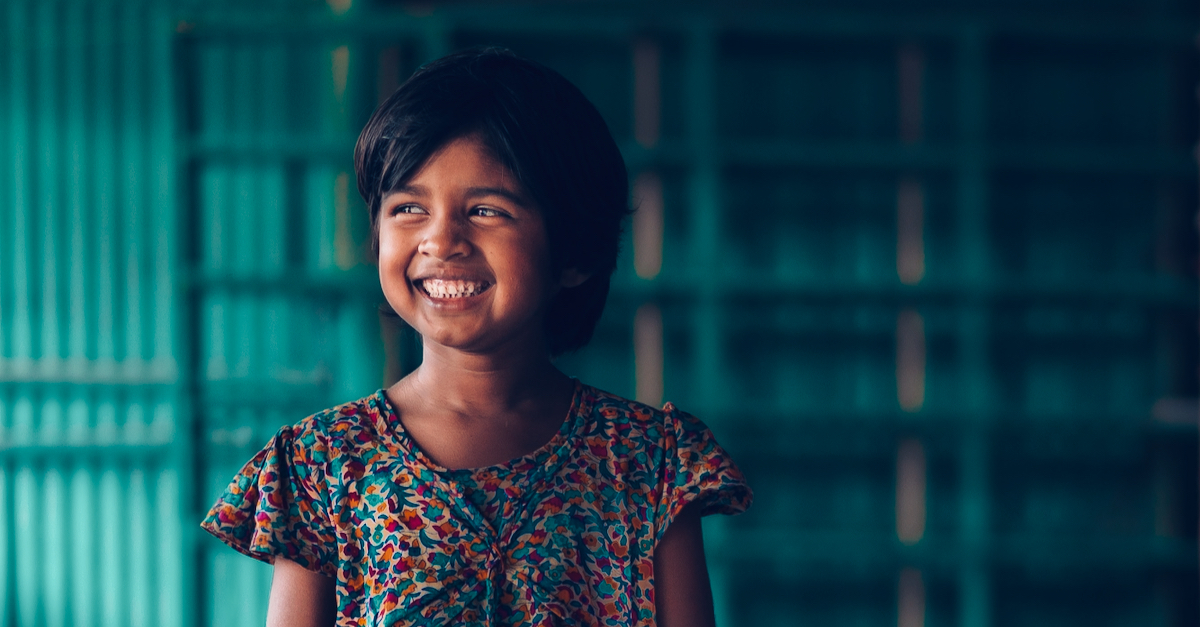Key report says 37 million children in Bangladesh lost education due to Covid-19 school closures.
Banks struggles to disburse loans to small businesses under second stimulus package.
EU to support renewable energy in Bangladesh including regional hydropower generation and energy connectivity.
Safe Back to School campaign prioritises extremely poor families and schools in remote areas.
Bangladesh still lags far behind competitor countries in agricultural productivity.
A weekly round up of articles about work, employment, social security, business and the economy. Here is the news for the week ending:
October 28st, 2021
This week’s round up comes from:
The Daily Star
This week in Bangladesh…

The future of an entire generation is at stake, says UNICEF
Remote learning was not effective for extremely poor children during the school closures.
Disadvantaged children, including many girls, had to do domestic chores and work outside the home.
Now is the time to invest, to strengthen the education system, and to bridge digital inequalities.
News in Bangladesh for the week ending October 28th, 2021
Education, Work, and Social Security
Lost education and the pandemic
37 million children affected by Covid school closures
Schools are gradually reopening in Bangladesh. They were closed from March 2020 following the onset of the pandemic.
Remote learning was not effective for many children during the closures.
The Campaign for Popular Education (CAMPE) claim that two out of three pre-primary to upper secondary students in Bangladesh were not reached through remote education during pandemic school closures.
We cannot overlook the impact that the disruption of education services has had on children, particularly the most vulnerable. When schools remain closed, children miss out on the biggest opportunity to learn and develop to their full potential. The future of an entire generation is at stake
Marcoluigi Corsi, UNICEF Regional Director a.i. for East Asia and Pacific
Disadvantaged children, including many girls, had to do domestic chores and work outside the home.
With schools now open in Bangladesh after an 18-month closure, we must spare no effort to rapidly put in place mechanisms that help children catch-up, keeping a particular focus on the most disadvantaged children. Now is the time to invest, to strengthen the education system, and to bridge digital inequalities
Sheldon Yett, UNICEF Representative to Bangladesh
Earlier this month UNICEF and UNESCO released the report, “Situation Analysis on the Effects and Responses to COVID-19 on the Education Sector in Asia.”
You can read the the South Asia sub-regional report here
Business, Economy and Trade
Small businesses are still struggling to recover
In April 2020, the Central Bank (“Bangladesh Bank”) provided a Covid-19 stimulus package worth 200 billion Taka (about $2.5 billion) for Cottage Micro, Small and Medium-sized Enterprises (CMSME).
Banks utilised 77% of that package in loans to these small businesses to manage cash flow during the crisis. Businesses had to pay back the loans within one year.
The loan period expired in June.The central bank has allocated another 2.5 billion Taka for the current fiscal year. The stimulus programme will continue for three years.
But banks disbursed less than 8% of the stimulus package in loans from July 1 to October 23 under the second round.
Banks says it is difficult to disburse the new loans as clients have not repaid their earlier loans.
Climate, Energy and Environment
EU praises Bangladesh leadership of Climate Vulnerable Forum
The EU and Bangladesh met for their fourth Diplomatic Consultations in Brussels recently.
The discussion covered climate change adaptation and mitigation. EU wants to support renewable energy including regional hydropower generation, and energy connectivity.
We earlier reported on a new utility scale solar power plant under construction in Bangladesh.
And also on a €50 million French loan to Bangladesh to support green energy.
Financial Inclusion and Services for the Poor
Safely back to school for extremely poor children
Several development partners including local and international NGOs are supporting the “Safe Back to School” campaign
The campaign prioritises extremely poor families and schools in remote areas.
It provided Covid-19 safety training for teachers so that children can return to school safely.
The initiative covers more than 10,000 schools.
Farmers and Agriculture
Farmers have to go further
Bangladesh still lags far behind competitor countries.
Agriculture in Bangladesh is highly subsidised.
But agricultural productivity is lower than Malaysia, Thailand, Vietnam, India and Cambodia.
The amount of subsidy is now 90 billion Taka [over $1 billion]. Agriculture has been sustained through subsidies in various sectors. But it will not be possible to go far in this way unless major structural changes are made in agriculture
Prof Shamsul Alam, state minister for planning
Speaking at “50 years of Bangladesh: Transformation and achievement of agriculture,” Senior figures raised concerns about accuracy of agricultural production information.
Commerce Minister Tipu Munshi expressed surprise. He said the national demand for onions is 2. 4 million tonnes . And production was over 3 million tonnes. But we still need to import onion.
Similarly Jahangir Alam, former director general of Bangladesh Livestock Research Institute said that Bangladesh imports rice even during surpluses.
He noted the differences between reporting from ministries and the figures from Bangladesh Bureau of Statistics.
Our big challenge now is to provide nutritious and safe food for all and to modernise agriculture
Muhammad Abdur Razzaque, Agriculture Minister
Covid Update
Governments will deliver 1 million doses per day from November.
Current average is 500,000 per day.
Goal is inoculation of 80 percent of targeted population by April 2022.
Bangladesh has received approximately 90 million doses of different brands from various sources.
Purchased around 100 million doses of vaccine — 75 million from Sinopharm and 30 million AstraZeneca doses from Serum Institute of India.
Will receive 105 million doses of Sinopharm and Sinovac vaccines from Covax and also 68 million does of other vaccines including Pfizer.
India detects Delta Plus variant in Maharashtra and Madhya Pradesh